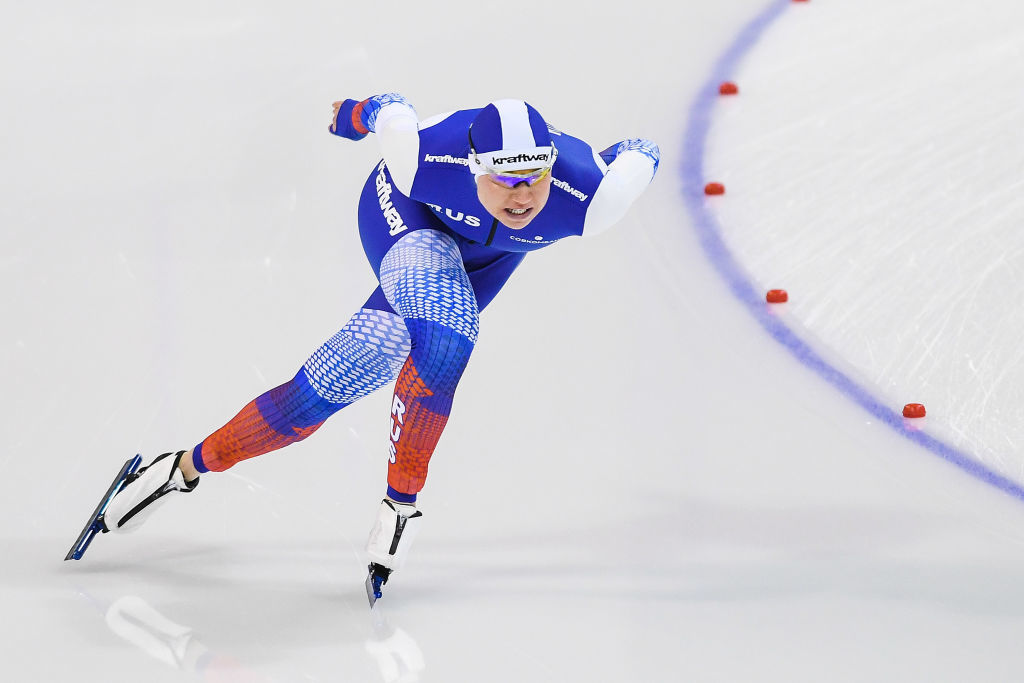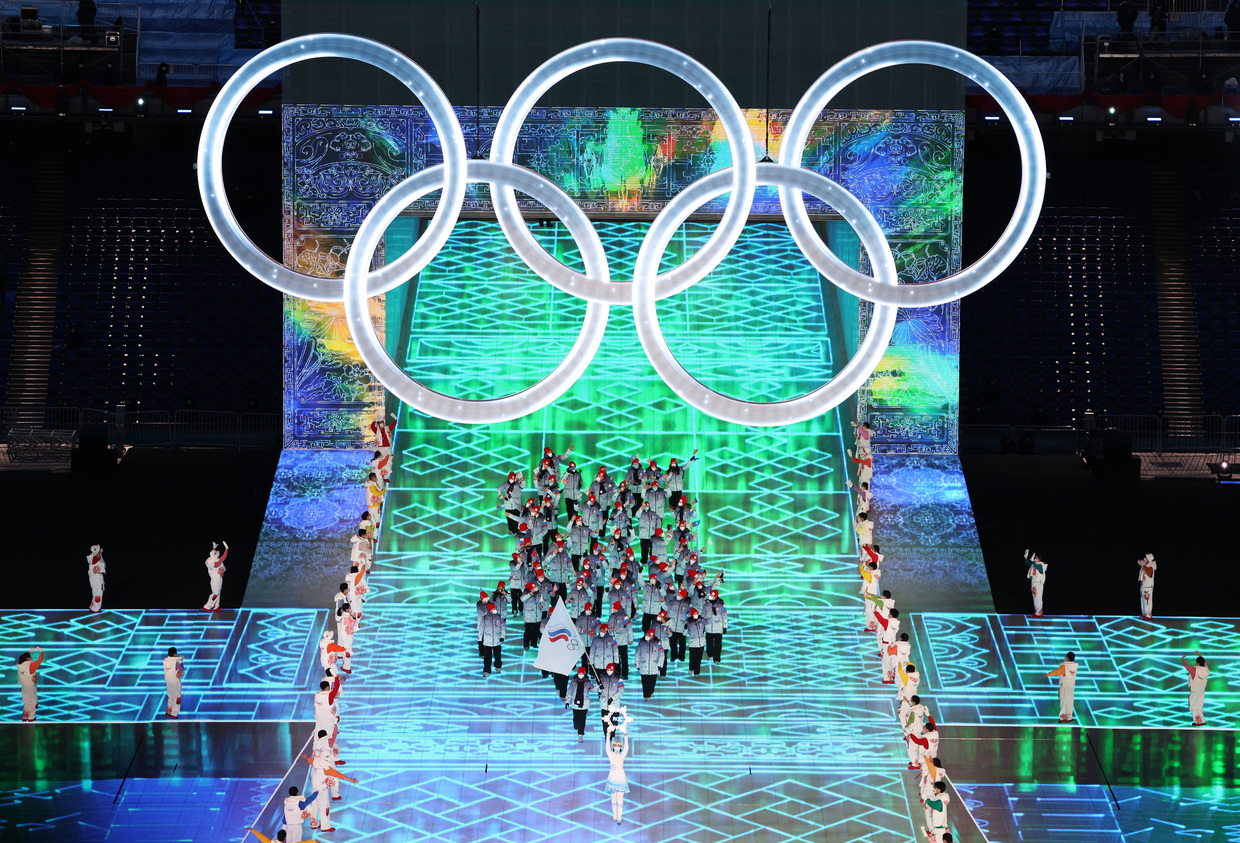Russia’s Olympic flag-bearer was symbolic choice for teammates unfairly tarnished
Speed skater Olga Fatkulina symbolizes Russian athletes who were unfairly banned from the 2018 Olympics
Russian speed skating star Olga Fatkulina, who was chosen as the country’s flag-bearer at the Beijing Games, has become a symbol of her teammates who were prohibited from taking part in the Winter Olympics four years ago after a controversial decision by the International Olympic Committee (IOC).
Olympic silver medalist Fatkulina was among those denied a chance to compete in South Korea over claims presented by fugitive doctor Grigory Rodchenkov, who accused Russia of state-sponsored doping.
The IOC disqualified many Russian athletes such as Fatkulina, who also had the medals they had won at the Sochi games annulled.
In an attempt to restore its international reputation, Russia appealed the IOC’s verdict in the Court of Arbitration for Sport (CAS), which conducted independent hearings, taking into account all evidence and allegations – many of which, including in the case of Fatkulina, appeared dubious.

Several days before the opening ceremony of the 2018 Games, the CAS upheld Russia’s appeal, confirming that scratches on sample bottles should not be regarded as doping violations.
Dozens of athletes, including Fatkulina, had their international bans lifted and medals restored.
Despite the CAS decision, the IOC, which had the option of approving Russia’s athletes for the Games after the disqualification of the Russian Olympic Committee (ROC), did not allow all of the vindicated athletes to compete in the Games – a decision backed by a CAS panel.
Many Olympic favorites, including prominent skiers, biathletes, and bobsledders, were forced to skip the showpiece in South Korea, where Russian athletes competed without a flag and anthem.
Those who did compete were known blandly as ‘Olympic Athletes from Russia’ (OAR).
Fatkulina, who won the Olympic silver at the Games in Sochi, was among those who was forced to remain at home four years ago.
The speed skater said she was devastated by the decision, but this misfortune made her continue with her professional career and complete another four-year cycle to be able to compete in Beijing.

“It was a big loss. This controversy surrounding our participation in the 2018 Games lasted for more than a year, during which we tried to stay motivated. Coaches tried to support us. But several months before the Olympics I realized that our chances of competing there were very low. I even thought to reject the invitation if I had been approved. It was all about pride, I didn’t want to compete without a flag,” Fatkulina said.
“It hurt my dignity. I needed to rise from the ashes. I think that I stayed for another Olympic cycle just because of that,” she added.
Fatkulina said she was honored to bear the flag at the opening ceremony – though it was not the Russian national tri-color, but the emblem of the ROC, as Russia is still banned from using national symbols at major sporting events.
With her presence in Beijing, Fatkulina at least sent a message to fellow Russian athletes who have been unfairly tarnished in an ugly doping scandal which has claimed innocent victims among Russian athletes along the way.
By Elena Dilber
